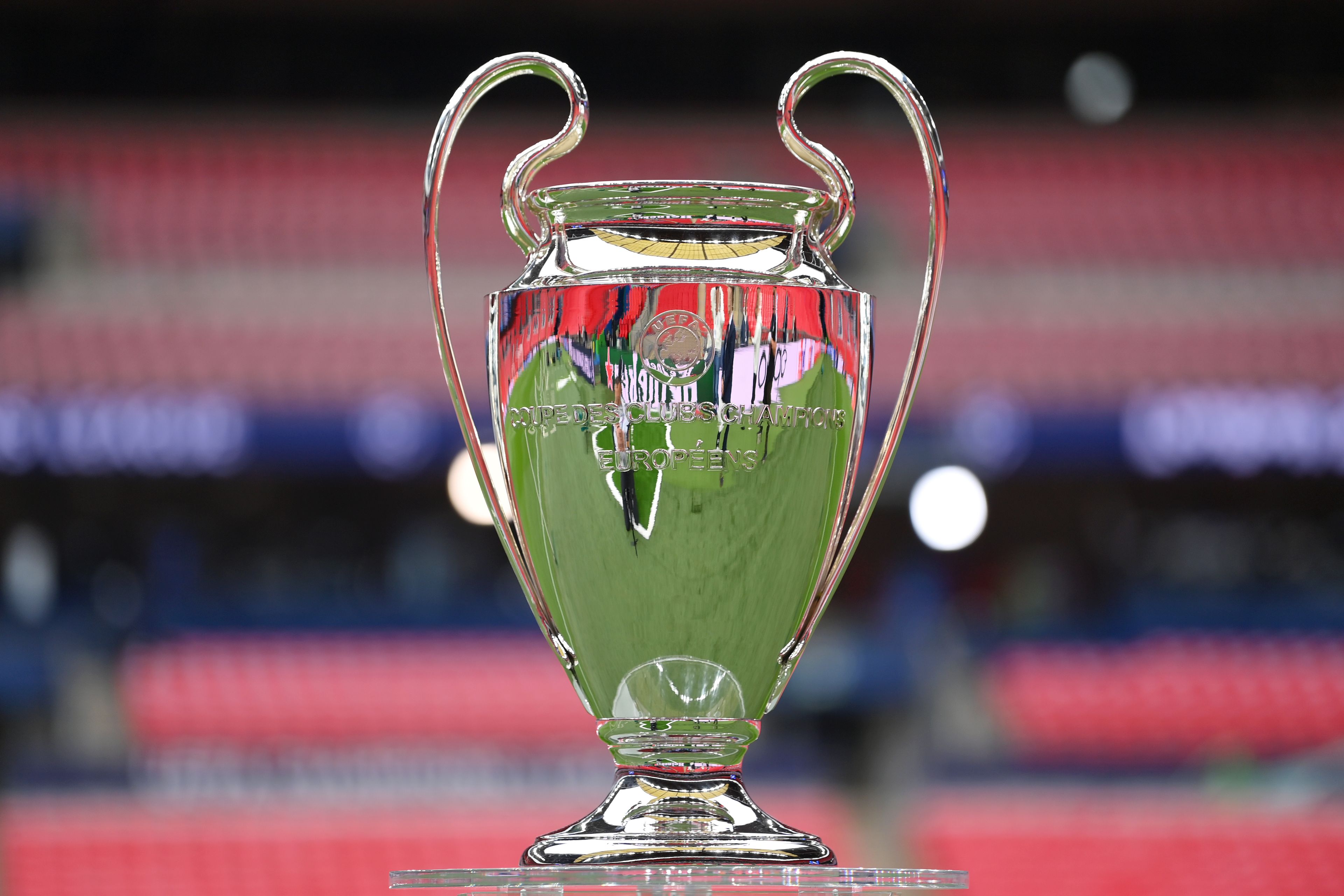
Echoes of Glory: Legendary Moments That Forged World Cup History
The FIFA World Cup, more than just a football tournament, is a global spectacle that transcends sport, uniting nations in a shared passion. Every four years, it transforms ordinary athletes into immortal heroes and ordinary matches into unforgettable sagas. From the dust of ancient pitches to the dazzling lights of modern stadiums, the World Cup has been a crucible for moments of breathtaking skill, raw emotion, unparalleled drama, and controversial infamy. These legendary instances, etched into the collective memory of billions, define the tournament’s rich history and contribute to its unparalleled allure.
This article delves into some of the most iconic and legendary moments that have shaped the World Cup’s narrative, showcasing the triumph, tragedy, brilliance, and sheer human drama that make it the greatest show on Earth.
The Genesis of Legend: Early Eras and Unforeseen Upsets
The World Cup’s early decades laid the groundwork for the legends to come, demonstrating its capacity for both expected greatness and shocking upsets.
1950 – The Maracanazo: A Nation’s Silence
In 1950, Brazil, hosting its first World Cup, was poised for coronation. With the final group stage match against Uruguay at the colossal Maracanã Stadium, a draw would suffice for the Seleção to claim their maiden title. Over 200,000 expectant fans packed the stadium, ready to erupt in celebration. Brazil took the lead, and the party atmosphere intensified. However, Uruguay, defying all odds and expectations, staged one of the greatest upsets in sporting history. Goals from Juan Alberto Schiaffino and Alcides Ghiggia silenced the massive crowd, turning a carnival into a funeral. The "Maracanazo" became synonymous with national heartbreak, a wound that would take decades to heal, and a testament to the World Cup’s unpredictable nature. It taught the world that in football, nothing is guaranteed until the final whistle.
1958 – Pelé’s Arrival: The Birth of a King
The 1958 World Cup in Sweden marked the arrival of a phenomenon who would redefine the sport: a 17-year-old Brazilian named Pelé. Though initially injured, Pelé exploded onto the scene in the knockout stages, scoring a hat-trick in the semi-final against France and two dazzling goals in the final against Sweden. His second goal in the final, a sublime chip over a defender followed by a volley, remains one of the most iconic in history. Pelé’s raw talent, athleticism, and joyful play captivated the world, leading Brazil to their first World Cup title. It was the moment a legend was born, setting the stage for a dynasty and establishing Brazil’s "Jogo Bonito" (beautiful game) philosophy.
1966 – England’s Sole Glory: The Home Advantage and a Disputed Goal
For England, the 1966 World Cup on home soil represents their finest footballing hour. Under the astute management of Alf Ramsey, the "Wingless Wonders" battled their way to the final against West Germany at Wembley. The match was a pulsating affair, ending 2-2 after 90 minutes. In extra time, Geoff Hurst scored his second goal, a powerful shot that famously struck the underside of the crossbar and bounced down. To this day, whether the ball crossed the line remains a subject of fierce debate, particularly in Germany. The referee and linesman awarded the goal, sealing England’s 4-2 victory and Hurst’s unique hat-trick in a World Cup final. It was a moment of national jubilation, forever etched in English football folklore, tinged with a touch of controversy that only adds to its legend.
The Golden Age of Legends: Brilliance, Controversy, and Redemption
The 1970s and 1980s saw the World Cup mature into a global juggernaut, producing some of its most enduring images and narratives.
1970 – Brazil’s Symphony of Skill: The Perfect Team
If 1958 was Pelé’s arrival, 1970 was Brazil’s masterpiece. The Seleção, featuring an astonishing array of talent including Pelé, Jairzinho, Rivelino, Tostão, and Carlos Alberto, played football of unparalleled beauty and attacking flair. Their 4-1 victory over Italy in the final, capped by Carlos Alberto’s thunderous goal after a breathtaking team move, is often cited as the pinnacle of footballing artistry. Every touch, every pass, every movement seemed choreographed to perfection. This team set a new standard for attacking football and cemented their status as arguably the greatest World Cup side of all time. Their vibrant yellow jerseys and the sheer joy of their play became iconic.
1974 – Total Football vs. Der Kaiser: A Clash of Ideologies
The 1974 World Cup final pitted the Netherlands’ revolutionary "Total Football" concept, led by the enigmatic Johan Cruyff, against West Germany’s disciplined and powerful side, captained by Franz Beckenbauer. The Dutch opened the scoring within seconds of kick-off, before a German player had even touched the ball, from a penalty won by Cruyff. However, West Germany, spurred by Beckenbauer’s leadership, clawed their way back, eventually winning 2-1. This final was more than just a game; it was a philosophical clash between attacking fluidity and pragmatic efficiency. While the Dutch didn’t win, their style left an indelible mark, influencing generations of footballers and coaches, and Cruyff became a legend despite not lifting the trophy.
1982 – Paolo Rossi’s Redemption: From Zero to Hero
Paolo Rossi’s journey at the 1982 World Cup was one of the most remarkable redemption stories in sporting history. Having just returned from a two-year ban for match-fixing, Rossi started the tournament poorly, failing to score in the group stage and drawing heavy criticism. Yet, in the decisive second group stage match against tournament favorites Brazil, Rossi exploded, scoring a sensational hat-trick that knocked out the Samba Kings in one of the most thrilling matches ever played. He went on to score two more against Poland in the semi-final and the opening goal in the final against West Germany, leading Italy to an improbable title. Rossi’s transformation from vilified player to national hero captivated the world, proving the power of second chances on football’s grandest stage.
1986 – Maradona’s Duality: The Hand of God and The Goal of the Century
Diego Maradona’s performance at the 1986 World Cup in Mexico is arguably the greatest individual display in tournament history. In the quarter-final against England, Maradona produced two moments that perfectly encapsulate his complex genius. First, the infamous "Hand of God" goal: a blatant handball that went unnoticed by the referee, sparking outrage and endless debate. Just four minutes later, he scored "The Goal of the Century," a breathtaking solo effort where he dribbled past five English players from his own half before slotting the ball home. These two goals, occurring in the same match, showcased Maradona’s devilish cunning and his divine skill, cementing his status as a footballing deity and leading Argentina to their second World Cup title.
The Modern Era: Tears, Triumphs, and Unforgettable Drama
The World Cup’s progression into the modern era brought increased global viewership, heightened stakes, and even more dramatic narratives.
1990 – Gazza’s Tears: The Raw Emotion of Sport
The 1990 World Cup semi-final between England and West Germany was a tense, attritional battle. In extra time, England’s mercurial midfielder Paul Gascoigne, known for his dazzling skill, received a yellow card for a rash challenge. This meant that if England reached the final, he would be suspended. The realization dawned on his face, tears welled in his eyes, and his lip trembled – a raw, unfiltered display of emotion that resonated deeply with fans worldwide. Though England lost the penalty shootout, Gazza’s tears became an iconic image, symbolizing the passion and heartbreak inherent in the beautiful game, transforming him into a beloved figure despite the defeat.
1994 – Baggio’s Agony: The Missed Penalty
The 1994 World Cup final in the USA between Brazil and Italy was a tactical stalemate, ending 0-0 after extra time – the first World Cup final decided by a penalty shootout. After both teams missed their opening kicks, the tension escalated. It came down to Italy’s star player, Roberto Baggio, who had carried his team through the knockout stages with a series of sublime goals. Needing to score to keep Italy’s hopes alive, Baggio blasted his penalty high over the bar. The image of the "Divine Ponytail" standing dejectedly, hands on hips, staring into the distance, became an enduring symbol of sporting heartbreak and the cruelest fate in football.
1998 – Zidane’s Masterclass: French Glory on Home Soil
France, hosting the World Cup for the second time, had never won the tournament. Their talisman, Zinedine Zidane, had been brilliant but also received a red card earlier in the competition. In the final against a star-studded Brazil team, Zidane produced a performance for the ages. He scored two powerful headers from corners, giving France a commanding lead. His elegant control, vision, and decisive impact orchestrated a stunning 3-0 victory, sparking nationwide celebrations and solidifying Zidane’s place as a global superstar and a national hero. It was a dream come true for a nation, perfectly encapsulated by their iconic captain.
2002 – Ronaldo’s Redemption: The Phenomenon Returns
Four years after a mysterious pre-final collapse in 1998, and plagued by career-threatening injuries, Brazil’s Ronaldo entered the 2002 World Cup with questions surrounding his fitness and form. Yet, the "Fenômeno" was reborn. He scored eight goals throughout the tournament, including both goals in the final against Germany, one a clinical finish after a Rivaldo shot, and the other a trademark toe-poke. His golden boots and distinctive haircut became symbols of his incredible comeback. It was a narrative of perseverance and triumph, as Ronaldo finally lifted the coveted trophy, cementing his legacy as one of the greatest strikers in history.
2006 – The Headbutt Heard Round the World: Zidane’s Shocking Exit
Zinedine Zidane’s final professional match, the 2006 World Cup final between France and Italy, began with him scoring an audacious Panenka penalty. It seemed like a fairytale ending for the legendary midfielder. However, in extra time, a verbal altercation with Italian defender Marco Materazzi escalated, culminating in Zidane shockingly headbutting Materazzi in the chest. Zidane was shown a red card, walking past the World Cup trophy he would never lift. Italy went on to win the penalty shootout. It was an astonishing, tragic, and utterly unforgettable end to one of football’s most illustrious careers, leaving a lasting image of frustration and regret.
The Contemporary Saga: New Heroes and Unprecedented Drama
The most recent World Cups have continued to deliver extraordinary moments, creating new legends and rewriting history.
2010 – Iniesta’s Defining Moment & Suarez’s Hand: High Drama in South Africa
The 2010 World Cup in South Africa, the first on African soil, delivered drama until the very end. In the quarter-final, Ghana looked set to become the first African team to reach the semi-finals, but in the dying seconds of extra time, Uruguay’s Luis Suarez deliberately handled the ball on the goal line, preventing a certain goal. He was sent off, but Ghana missed the resulting penalty, and Uruguay won the shootout. It was a moment of shocking sportsmanship and gut-wrenching despair.
In the final, Spain, masters of "tiki-taka," battled the Netherlands in a physical encounter. With only minutes left in extra time, Andrés Iniesta scored the winning goal, sending Spain into raptures and securing their first-ever World Cup title. Iniesta’s celebration, revealing a tribute to a deceased friend, added an emotional layer to a moment of pure sporting glory.
2014 – The Mineirazo: Brazil’s Unfathomable Collapse
Hosting the World Cup for the second time, Brazil was once again burdened by immense national expectation. Their semi-final clash against Germany in Belo Horizonte was anticipated to be a tight affair. What unfolded, however, was an unprecedented footballing catastrophe. Germany tore through Brazil, scoring five goals in the first 29 minutes, eventually winning 7-1. The "Mineirazo" was a humiliation of epic proportions, surpassing even the Maracanazo in its scale of despair. Brazilian fans, from children to grandparents, wept openly in the stands, as their dreams of a sixth title evaporated in a torrent of German goals. It was a shocking, unforgettable moment that redefined World Cup heartbreak.
2018 – Mbappé’s Arrival: The Torch Passed
Kylian Mbappé, a teenage sensation, illuminated the 2018 World Cup in Russia with his explosive pace and devastating finishing. His performance in the final against Croatia, where he scored a crucial goal, made him the first teenager since Pelé in 1958 to score in a World Cup final. Mbappé’s electrifying runs and fearless play signaled the arrival of a new generation of superstars, demonstrating his potential to dominate the sport for years to come. France’s victory marked their second title, but it was Mbappé’s breakout tournament that truly captured the world’s imagination, hinting at future legends.
2022 – Messi’s Coronation: The Ultimate Narrative Arc
The 2022 World Cup in Qatar culminated in arguably the greatest final in tournament history, providing a fitting climax to Lionel Messi’s unparalleled career. After years of carrying Argentina’s hopes and falling short, Messi, at 35, delivered a masterclass. He scored two goals in the exhilarating 3-3 draw against France, and converted his penalty in the decisive shootout. The match itself was a rollercoaster of emotions, with Kylian Mbappé’s hat-trick ensuring a breathtaking contest. Messi finally lifted the World Cup trophy, completing his legendary career with the one major title that had eluded him. It was a narrative of perseverance, destiny, and the ultimate triumph, providing a perfect, storybook ending to one of football’s most celebrated careers.
The Enduring Legacy
These legendary moments, each unique in its drama and significance, are the bedrock of the World Cup’s enduring appeal. They are not merely records in a history book; they are vivid memories that connect generations of fans, sparking debates, inspiring dreams, and reminding us of the raw, unpredictable beauty of football. From the tears of defeat to the shouts of triumph, from the cunning of a cheat to the brilliance of a genius, these instances encapsulate the full spectrum of human emotion and athletic endeavor.
The World Cup is a stage where legends are born, narratives are forged, and history is written, one unforgettable moment at a time. As the global spectacle continues, we eagerly anticipate the next chapter, knowing that somewhere, in the roar of the crowd and the flash of a boot, another legendary moment is waiting to unfold, ready to be etched forever into the annals of football history.



